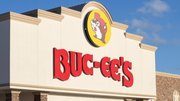Article
Is this the death of loyalty rewards as we know them?
When customers choose which company to do business with, rewards just don't matter like they used to.

January 31, 2011
By Tom Rapsas, Hanifin
This article, originally published on the Hanifin Loyalty blog, was featured for discussion by RetailWire's "BrainTrust" panel of retail industry experts.
I'm sensing a tipping point in how customers relate to loyalty program rewards, and my thinking goes like this: When customers choose which company to do business with, rewards just don't matter like they used to.
My take is that the classic loyalty reward scheme -- earning points toward "hard" rewards for repeatedly doing business with a company -- has been trumped by the customer experience. In other words, today's customer is more likely to opt for a better experience today, than accept a lesser experience that pays dividends down the road.
Let's start with a personal example. I recently cleaned out my wallet and found reward cards for both Borders and Barnes & Noble. Now, I know I have points in both of these programs, but I haven't engaged with either brand for years. Why? I've given all my business to Amazon, which for me offers a better customer experience.
A recent blog by marketing guru Seth Godin points anecdotally to a similar trend toward "experience over rewards" happening in the airline industry. Mr. Godin believes that the greater the risk involved with getting a reward -- one we have to save for and may never use -- the less we value it.
He writes: "Frequent flyer miles, for example, began with the promise that if you flew an airline regularly for months (or even years) you'd get a free flight. The airlines oversold the miles and undelivered on the free flights, though, so the reward started to lose its perceived value -- too much risk that you wouldn't get the prize you wanted. Many of the frequent flyers I know have ceased to 'save up' and now use their miles for upgrades, moving the benefit closer in time."
In another sign of the sea change, several companies are now offering customers "loyalty rewards" with no points, or long-term loyalty, needed. Take the telecomm space, where both Verizon and Optimum have recently launched reward programs with merchant discounts, special promotions and exclusive content--with no strings attached. Prove you're a customer and you're in.
Why is the trend moving toward more automatic and instantaneous recognition of customers? Mr. Godin attributes the change to the internet, stating, "One of the many things the web is changing is our focus on now." I see his point. Now more than ever, today's consumer wants things at the speed of the Internet, whether it's information, customer service--or a perk for being a customer.
Discussion questions: Do you also see retail loyalty programs inevitably moving more toward automatic and instantaneous recognition over earned points? Have consumers become less enchanted towards points-based loyalty rewards programs?
Despite the persistent assumptions of marketers -- consumers are not stupid.
The reason that "loyalty" programs are losing their appeal is that many of them were, at base, fraudulent to begin with.
Supermarket loyalty cards, for example, really didn't offer what consumers saw as a discount, but rather established the "new normal" in pricing. As the article pointed out, for most flyers, frequent flyer programs failed to deliver on their promise and now, in the post merger era of air travel, one can be a platinum flyer (living in a hub city) and routinely never even get upgraded.
As to the author's Borders and Barnes & Noble example, Barnes & Noble charges card carriers a fee and Borders now charges an up-charge if a card holder wants premium benefits. For the majority of book buyers, the benefit isn't all that clear.
I'm not so sure what consumers are doing is trading service-in-the-hand for rewards down the line as much as it is that they are doing what they've always done -- demanded to be treated as intelligent adults who can see through a transparent bait-and-switch marketing program or a data grab. - Ryan Mathews, Founder, CEO, Black Monk Consulting
If current loyalty programs are losing their luster, the owners of those programs have no one but themselves to blame. The rewards are too far away and competitors are offering better service along with lower prices (some even offer their own loyalty programs).
This is not to say that loyalty programs are dead. They need to be retooled to meet the realities of the current marketplace. Rewards should have levels that are easier to attain and they should be available when consumers want them. Then combine those programs with good customer service and consumers will want to build points in those programs. - Max Goldberg, Founding Partner, The Radical Clarity Group
Ryan Mathews says it all, "Despite the persistent assumptions of marketers, consumers are not stupid."
It makes ultimate business sense to reward your most loyal customers. They are the most profitable customers you have and you should do everything you can to keep them. Unfortunately, most loyalty programs are generic in structure and have little meaning to the customer. Some that are terribly unique are so complicated that they ultimately have little meaning. It is not a matter of instant rewards, it is a matter of meaningful rewards.
With regard to experience, loyalty programs and experience...they are not trade-offs. The Amazon example is perfect. There is nothing that Borders or B&N can offer in customer experience to beat Amazon. No loyalty program in the world can change that equation. - Gene Detroyer, Entrepreneur, Advisor, Consultant, Counselor, Independent
What I'm projecting is that loyalty offerings are going to become far more polarized in nature. We will continue to have the mundane point-per-dollar-spent type programs but we will also begin to see a new breed of exclusive communities specifically for elite customers. These exclusive branded communities will not only offer real tangible rewards but also social and lifestyle benefits.- Doug Stephens, President, Retail Prophet
(Photo by Nick J. Webb.)
 ChatGPT
ChatGPT Grok
Grok Perplexity
Perplexity Claude
Claude




